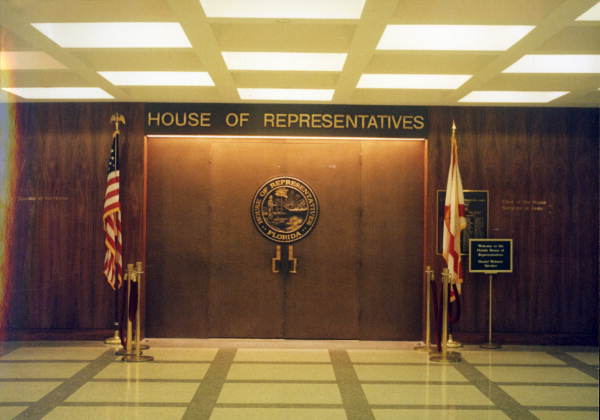By Jim Saunders, The News Service of Florida
TALLAHASSEE — State lawmakers are ready for the big dance.
The Florida House on Thursday overwhelmingly passed an $89.9 billion spending plan, setting the stage for the annual ritual of negotiating a budget with the Senate.
Big picture, the House and Senate are about $400 million apart, as the Senate on Wednesday passed a $90.3 billion budget. But within those overall numbers are myriad differences that House and Senate leaders will have to resolve if the legislative session is going to end on time May 3.
When asked by a reporter Thursday about the biggest challenge going into negotiations, House Speaker Jose Oliva, R-Miami Lakes, replied with a laugh that “the Legislature is made up of people.”
“The biggest issue is that we’re dealing with people, so people have different priorities about different things and different concerns,” Oliva said. “This is a process of building coalitions. You have to bring people together to come to a general agreement and hopefully to get most of what everyone wants, but it’s impossible to get everything that everyone wants.”
During floor discussions in the House and Senate this week, Democrats criticized the budget plans about issues such as teacher pay, hospital funding changes and school mental-health services. But in the end, most Democrats voted for the proposals — the vote on the Senate plan was 40-0, and the vote on the House plan was 105-8.
That means the upcoming negotiations for the 2019-2020 fiscal year will center on the ability of House and Senate Republican leaders to bridge their differences. Among the key issues:
— The Senate wants to increase funding in the Florida Education Finance Program, the main source of money for public schools, by $1.1 billion. The House is proposing a $579.3 million increase. That translates to a 4.71 percent increase per student in the Senate, and a 2.75 percent increase per-student in the House.
— The chambers differ on the big-ticket issue of Medicaid funding for hospitals. The Senate wants to redirect $319 million in hospital funding away from 29 facilities with the state’s largest Medicaid caseloads and include the money in overall Medicaid rates. That move could benefit other hospitals. Meanwhile, the House is calling for a 3 percent across-the-board cut in Medicaid hospital rates.
— The House wants to provide $19 million to the tourism-marketing agency Visit Florida to cover operations from July 1 through Sept. 30, the first three months of the fiscal year. The House would then allow Visit Florida to go away, as the agency is only legally authorized to operate through Sept. 30 unless extended by the Legislature. The Senate, meanwhile, wants to spend $50 million on Visit Florida next year and reauthorize its operations.
During floor debate Thursday, House Democrats focused on those and other issues, including saying the House should spend more on mental-health programs in schools, affordable housing and helping areas devastated by Hurricane Michael.
“First of all, allowing Visit Florida to sunset would be catastrophic to a state that counts tourism as the backbone of our economy, an industry that we know has a better than two-to-one return on investment,” said Rep. Loranne Ausley, a Tallahassee Democrat who voted against the House plan. “Secondly, hospital cuts across the board would significantly hit our safety-net hospitals and could be the final nail in the coffin for our rural hospitals who are already struggling to keep their doors open. Third, no pay raise (in the budget) for state employees who work so hard for us every day. And finally, not enough attention or focus on our neighbors to the west (who were hit by the hurricane).”
But House Appropriations Chairman Travis Cummings, R-Fleming Island, called the spending plan a “very responsible and sensible budget” that also includes $3.3 billion in reserves.
“Conference creates an environment that we are able to work out differences,” Cummings said to House members, referring to formal conference negotiations with the Senate. “Now, this is our House budget. Obviously, we’ve got some differences and variances in the Senate budget. We’re going to work hard on those … we look forward to that. And there’s some needs that each of you have expressed and some things that I think need to be done, that I’m hopeful that we can push the ball forward in conference and do that.”
— News Service staff writers Christine Sexton and Jim Turner contributed to this report.

